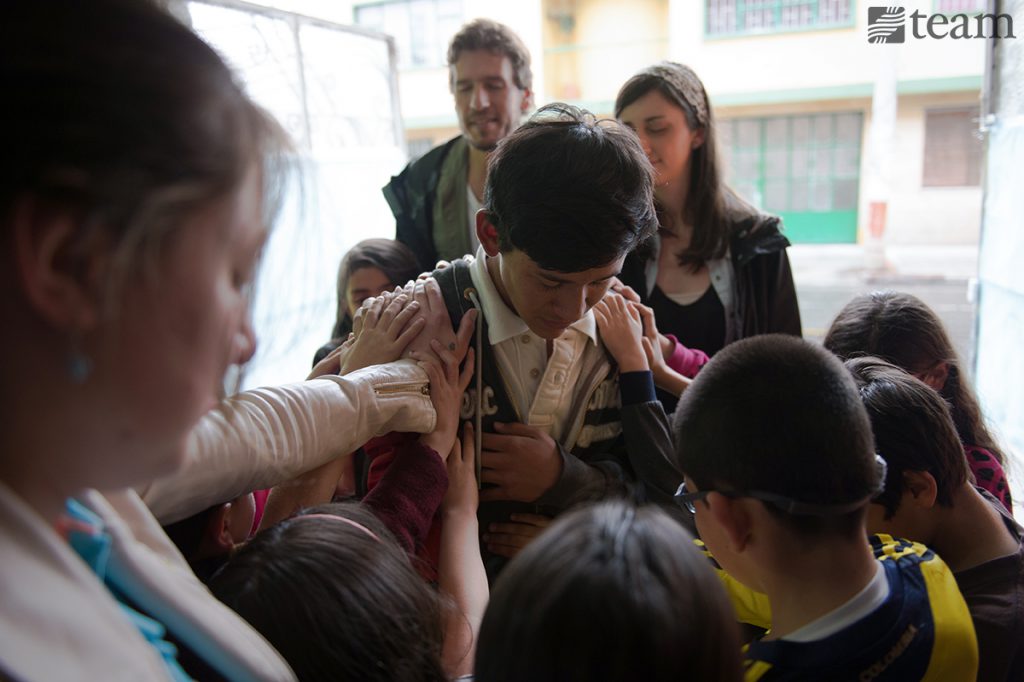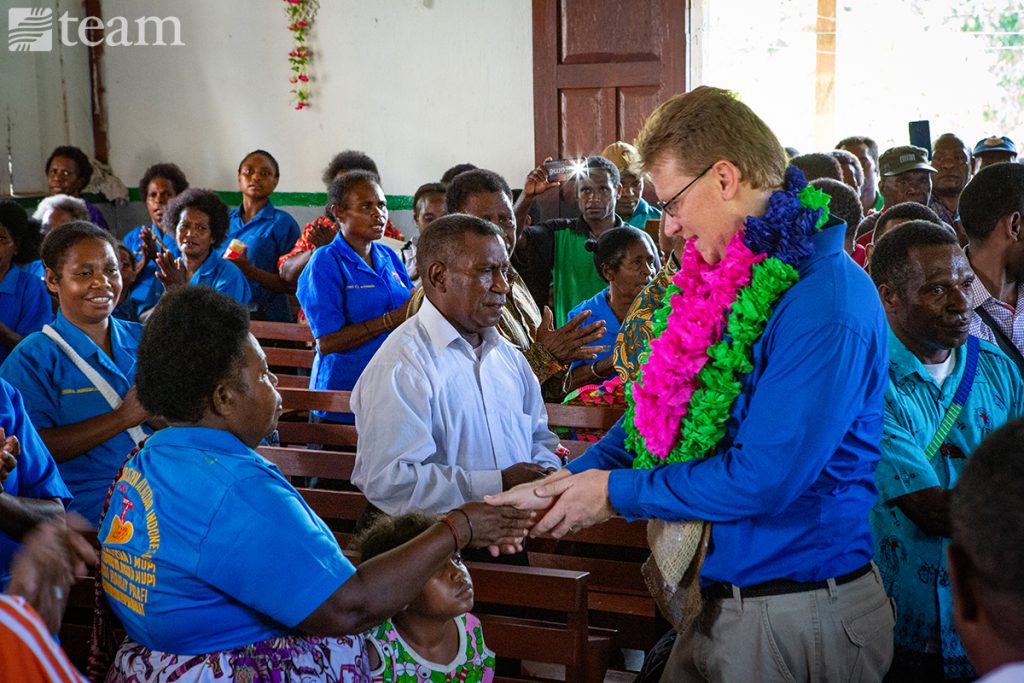
Sending Churches
How to Become a Sending Church
January 21, 2020
by Anna Price

Did you know every single TEAM missionary has a sending church? Whether they are going for two weeks or 20 years, staying here in North America or serving in Southern Africa, we believe so strongly that God has called the church to send missionaries that TEAM has made it our mission to help them do so!
Most churches would say they want to be a church that sends her people outside her walls, whether that is across the street or across the globe. But how does a church become a church that sends people?
With over 500 sending churches in the TEAM family, here are the four common characteristics we see in churches that send missionaries:
Prayer
“He told them, ‘The harvest is plentiful, but the workers are few. Ask the Lord of the harvest, therefore, to send out workers to his harvest field.” Luke 10:2 (NIV)
What I love about this verse is how Jesus both invites us into His ministry, while twice in one sentence reminding us whose ministry it is. He is Lord of the harvest, and it is his harvest field. But still, Jesus commands us to ask God for more workers to participate in his harvest.
When we create rhythms of prayer for missions at our churches, we remind ourselves of two facts: that God is in charge of His work and that He graciously allows us to be part of that work.

Prayer reminds us of God’s heart for the nations and prepares our own hearts for missions. As you ask God to send workers, He will answer — likely by calling members of your church to go.
Our time spent in prayer reminds us that God’s heart is for every nation to worship Him. Rhythms of prayer remind us of our daily role in loving the nations. When a church sets aside regular time to pray for the nations, it also creates a culture of expectation that God can and will use your church and individuals in it to fulfill His mission.
Is your church interested in creating rhythms of prayer for the nations? Talk to our Church Engagement Department to connect with a specific ministry area or missionary for prayer requests.
Discipleship
“Follow my example, as I follow the example of Christ.” 1 Corinthians 11:1 (NIV)
Don’t you admire Paul’s boldness in this verse? Don’t you want to be able to say, “I am worth imitating because I look like the only One worth imitating?”
The truth is, we are all broken people. Some days, we will look like Christ. Other days, our selfish ambition and pride are the only things visible. Even the most devout missionary faces these struggles. But as issues of sin fester and grow, we have seen one thing make the difference in healthy missionary teams: discipleship from their sending church.
If a church sends out missionaries who are well versed in Scripture, spiritual disciplines and theology, those missionaries are better able to cling to their spiritual identity as children of God when the stress of the mission field seems overwhelming. They are also more likely to seek out repentance and community in hard times, having experienced that in their sending church.
Foundationally, missionaries who are discipled by their sending church to have a heart for evangelism and the nations are more likely to hear the call to go to the nations! Discipleship doesn’t end at salvation or after a few years of “acting right”. We are saved so that we are able to confidently share what God has done with others.
Preparation
At a recent conference, Allan Taylor, Lifeway’s director of church ministries, shared, “You have a strategy for your budget, a strategy for your service times. If missions is the mission of the church, why don’t you have a strategy for that?”
Talk about a punch to the gut. We plan for the things that are important to us, both individually and as a church. Thus, our church should plan for God to raise up missionaries to be sent out. After all, aren’t we praying and discipling to this end?

Having a set missions strategy will encourage people to become missionaries and give them confidence that their sending church will still care for them when they hit the mission field.
A church that has a strategy for missions is able to cast vision for the congregation about how God might be calling them to harvest. A strategy may look like highlighting a specific geographic region or ministry type. It might be creating a class or small group for people who are interested in exploring missions.
A church with a strategy is also able to better care for the people who are called to missions by having clear policies and processes in place to walk them through applying, fundraising and ministering.
Our church engagement team is trained to help your church find its God-given missions strategy! Contact your local church engagement manager to cultivate your church’s strategy.
Communication
“Give thanks to the Lord, call upon his name. Make known to the nations what He has done!” Psalm 105:1 (NIV)
When we talk often about missionaries and the work they are doing, we not only show our congregation that we value God’s mission to the world, but we also normalize the idea of missions.
Discussing and celebrating missions often from your stage and small groups helps people understand they each have a role in missions work. From loving their neighbors to serving on a missionary care team, communicating about missions work and opportunities allows more people in your congregation to find their place.
Communication with and about missionaries helps your global partners feel loved and cared for. After all, your church has prayed for them, discipled them and prepared them to serve globally. When they get on that plane to serve, they don’t stop needing their sending church’s support and community — in fact, they may need it now more than ever!
Whether your church is ready to send its 100th missionary or asking God to raise up your first, TEAM would be love to talk with you about what God is doing in the world and how your church can be a part of it!
Related articles


